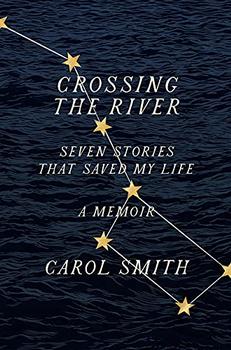Summary | Excerpt | Reviews | Beyond the book | Read-Alikes | Genres & Themes | Author Bio

Essays
by Jon MooallemFrom the discovery of the author's face in a century-old photograph to a triple-amputee hospice director working at the border of life and death, here are thirteen hopeful, heartbreaking, and profound essays from "one of the most intelligent, compassionate, and curious authors working today" (Elizabeth Gilbert).
Beneath the self-assured and serious faces we wear, every human life is full of longing, guesswork, and confusion—a scramble to do the best we can and make everything up as we go along. In these wide-ranging essays, Jon Mooallem chronicles the beauty of our blundering and the inescapability of our imperfections. He investigates the collapse of a multimillion-dollar bird-breeding scam run by an aging farmer known as the Pigeon King, intimately narrates a harrowing escape from California's deadliest wildfire, visits an eccentric Frenchman building a town at what he claims is the center of the world, shadows a man through his first day of freedom after twenty-one years in prison, and more—all with a deep conviction that it's our vulnerability, not our victories, that connect us.
Mooallem's powers of perception have established him as one of the most distinctive, empathic, and clear-sighted narrative journalists working today. The Wall Street Journal has called his writing "as much art as it is journalism," and Jia Tolentino has praised his "grace and command." In Serious Face, Mooallem brings to life the desperate hopes and urgent fears of the people he meets, telling their stories with empathy, humor, insight, and kindness. These elegant, moving essays form an idiosyncratic tapestry of human experience: our audacity and fallibility, our bumbling and goodwill. In moments of calamity and within the extreme absurdity of everyday life, can we learn to love the people we really are, behind the serious faces we show the world?
As an arts journalist myself, I loved "The Story About Charlie Kaufman Has Changed." I remember the early days of the pandemic when we all felt vulnerable and isolated, and we couldn't go out. I called musicians for interviews that ran quadruple their usual length. Mooallem's story about Kaufman, a screenwriter and director, is similar. The two can't meet because of COVID-19, so they have long weekly phone calls instead. The story, then, becomes about the power of connection during a time of social distancing. Over and over, Mooallem experiences a profound sense of interconnection, and it's a joy to read every time...continued
Full Review
(775 words)
This review is available to non-members for a limited time. For full access,
become a member today.
(Reviewed by Erin Lyndal Martin).
 In an essay from Serious Face titled "A House at the End of the World," Jon Mooallem writes about Zen Hospice, a palliative care facility opened in San Francisco in 1986 by members of the local Zen Buddhist community who were heartsick seeing unhoused people dying on the streets. They had the idea to open a hospice that would offer them shelter and comfort while allowing the volunteers to practice service. This was also during the peak of the AIDS crisis, when people were afraid to come into contact with those who had contracted the illness, leaving many patients to die alone in hospital hallways.
In an essay from Serious Face titled "A House at the End of the World," Jon Mooallem writes about Zen Hospice, a palliative care facility opened in San Francisco in 1986 by members of the local Zen Buddhist community who were heartsick seeing unhoused people dying on the streets. They had the idea to open a hospice that would offer them shelter and comfort while allowing the volunteers to practice service. This was also during the peak of the AIDS crisis, when people were afraid to come into contact with those who had contracted the illness, leaving many patients to die alone in hospital hallways.
Zen Hospice began very small with an all-volunteer staff and meager budget, operating from one room in a large Victorian house owned by the ...
This "beyond the book" feature is available to non-members for a limited time. Join today for full access.

If you liked Serious Face, try these:

by Edgar Gomez
Published 2025
A darkly comic memoir-in-essays about the scam of the American Dream and doing whatever it takes to survive in the Sunshine State—from the award-winning author of High-Risk Homosexual.

by Carol Smith
Published 2022
A powerful exploration of grief following the death of the author's son that combines memoir, reportage, and lessons in how to heal.
Analyzing humor is like dissecting a frog. Few people are interested and the frog dies of it.
Click Here to find out who said this, as well as discovering other famous literary quotes!